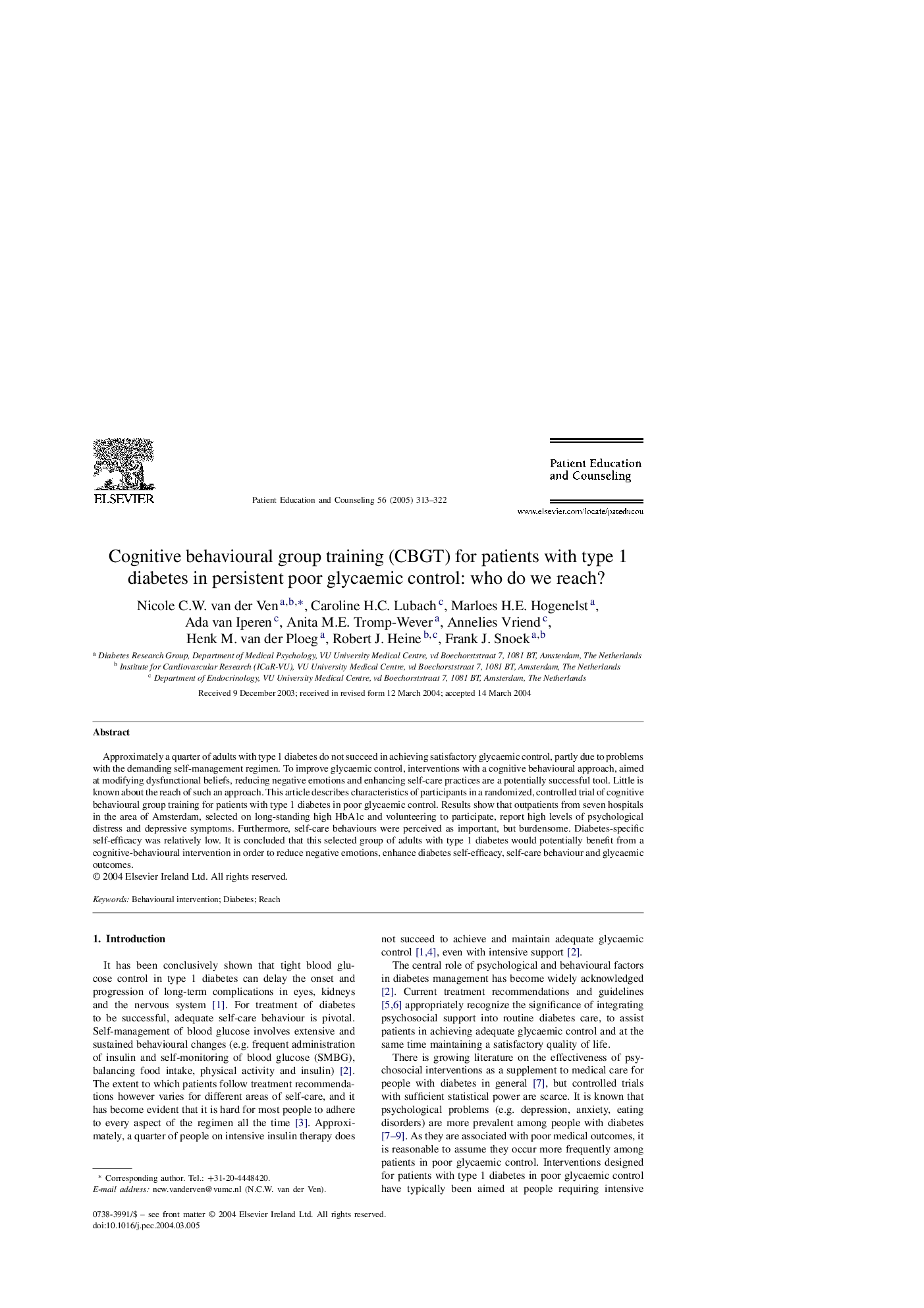| Article ID | Journal | Published Year | Pages | File Type |
|---|---|---|---|---|
| 9301449 | Patient Education and Counseling | 2005 | 10 Pages |
Abstract
Approximately a quarter of adults with type 1 diabetes do not succeed in achieving satisfactory glycaemic control, partly due to problems with the demanding self-management regimen. To improve glycaemic control, interventions with a cognitive behavioural approach, aimed at modifying dysfunctional beliefs, reducing negative emotions and enhancing self-care practices are a potentially successful tool. Little is known about the reach of such an approach. This article describes characteristics of participants in a randomized, controlled trial of cognitive behavioural group training for patients with type 1 diabetes in poor glycaemic control. Results show that outpatients from seven hospitals in the area of Amsterdam, selected on long-standing high HbA1c and volunteering to participate, report high levels of psychological distress and depressive symptoms. Furthermore, self-care behaviours were perceived as important, but burdensome. Diabetes-specific self-efficacy was relatively low. It is concluded that this selected group of adults with type 1 diabetes would potentially benefit from a cognitive-behavioural intervention in order to reduce negative emotions, enhance diabetes self-efficacy, self-care behaviour and glycaemic outcomes.
Related Topics
Health Sciences
Medicine and Dentistry
Medicine and Dentistry (General)
Authors
Nicole C.W. van der Ven, Caroline H.C. Lubach, Marloes H.E. Hogenelst, Ada van Iperen, Anita M.E. Tromp-Wever, Annelies Vriend, Henk M. van der Ploeg, Robert J. Heine, Frank J. Snoek,
